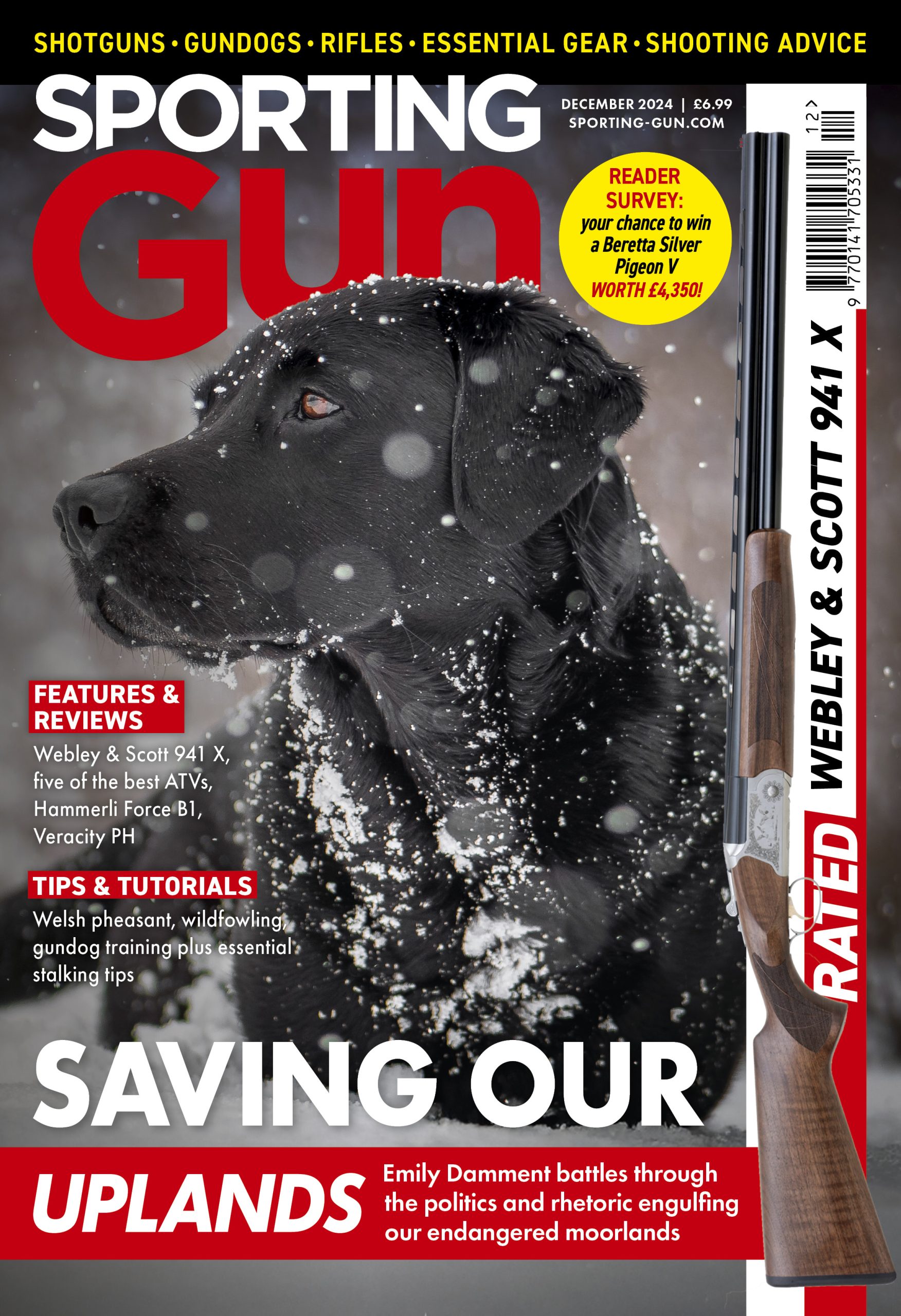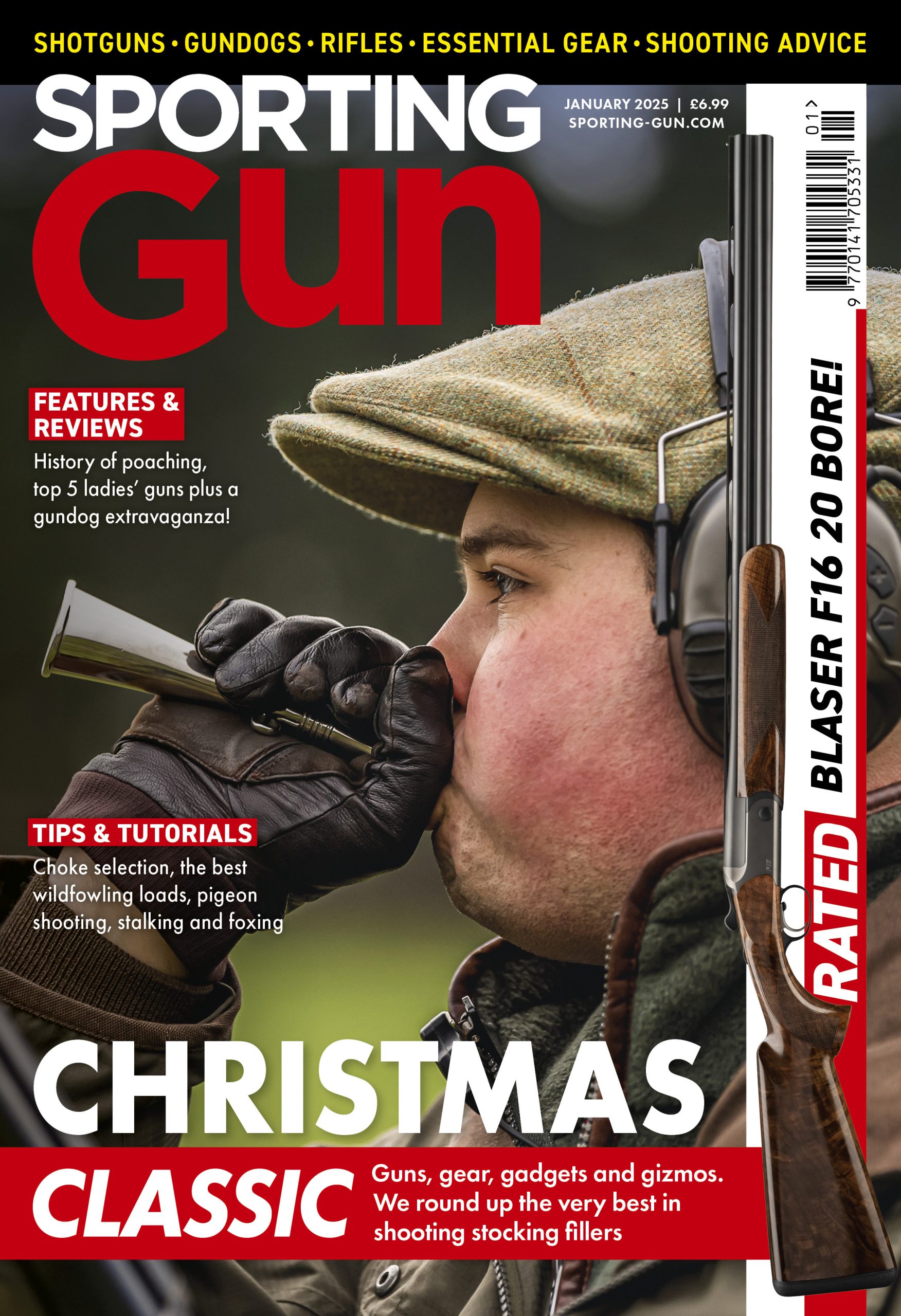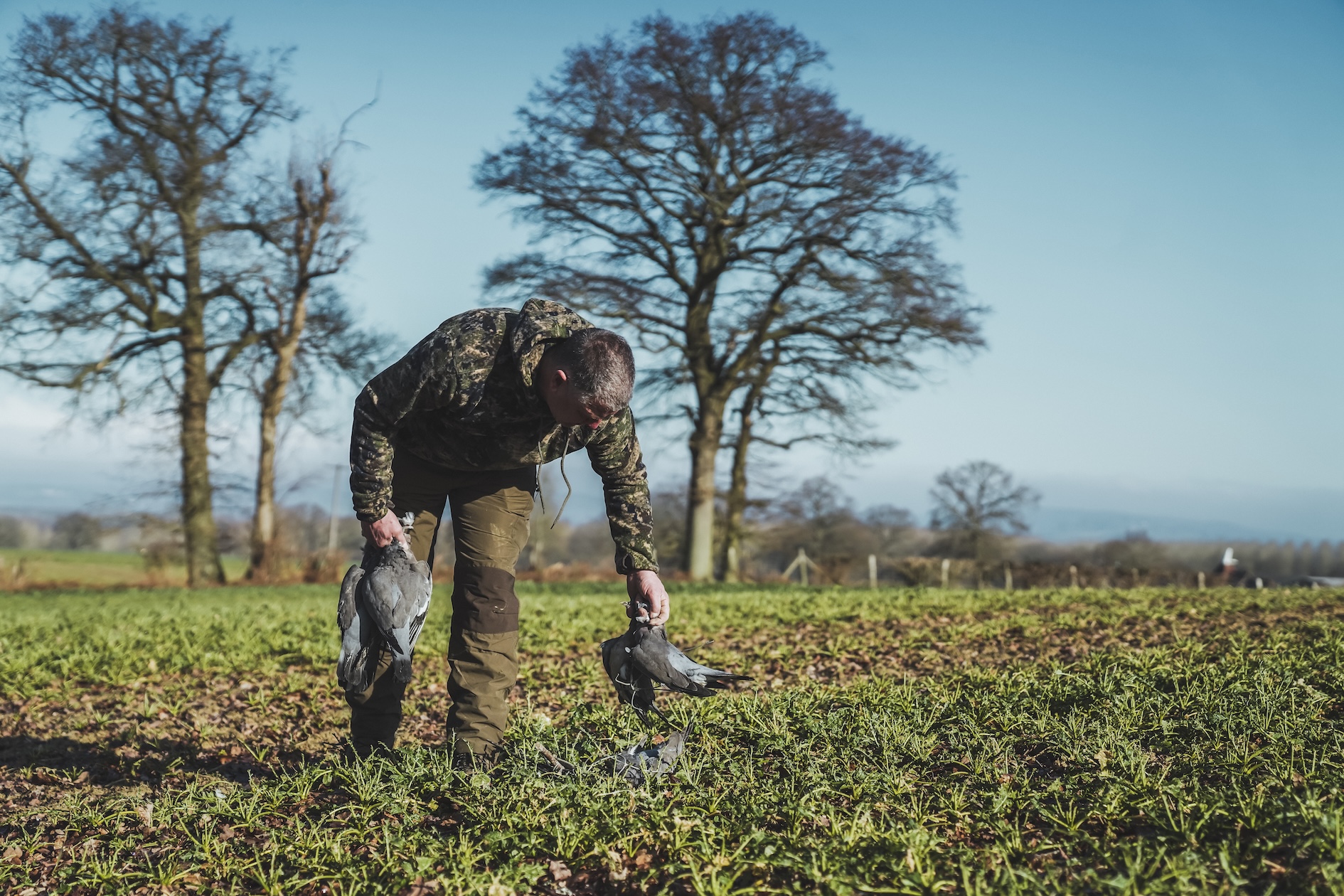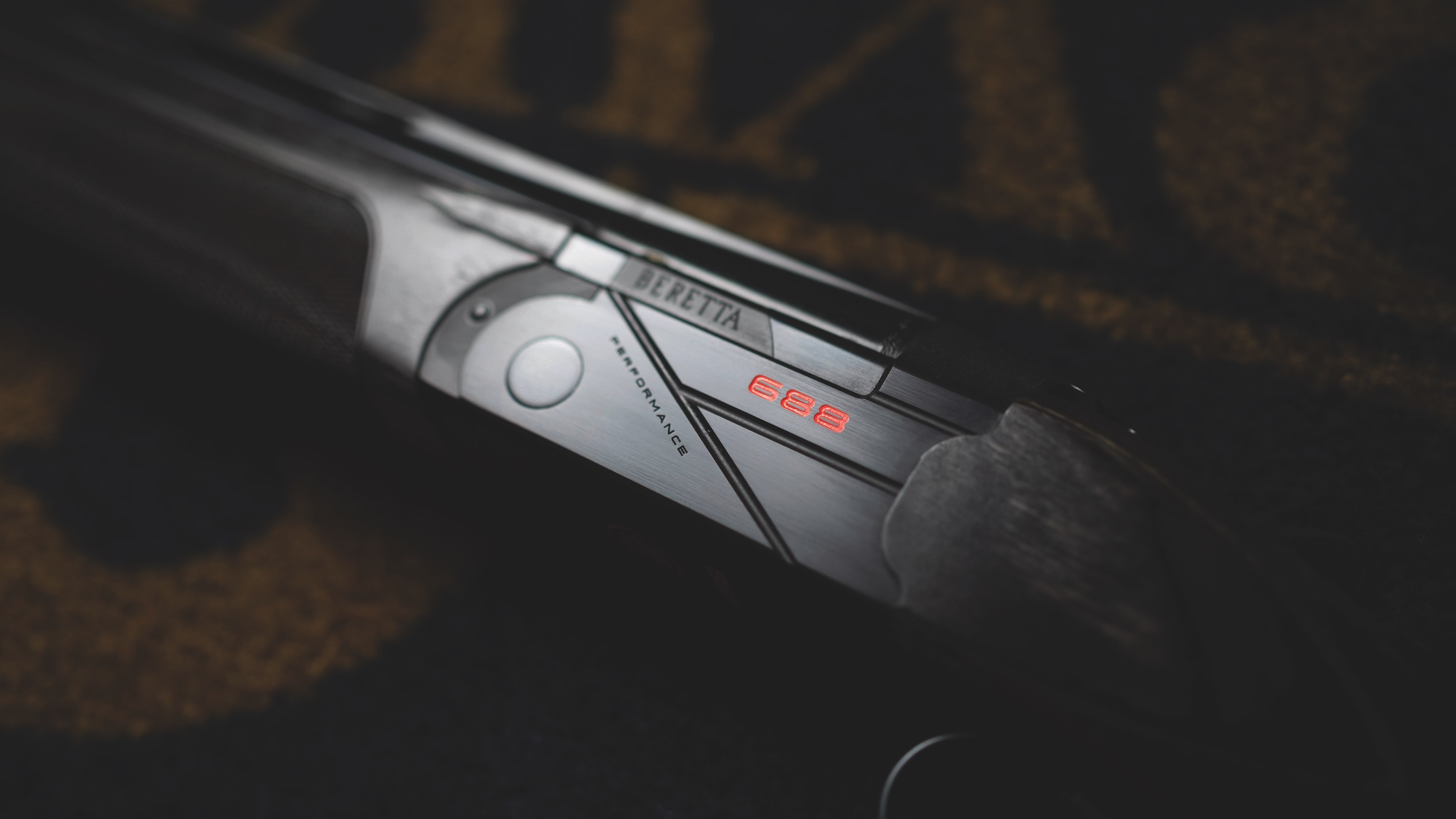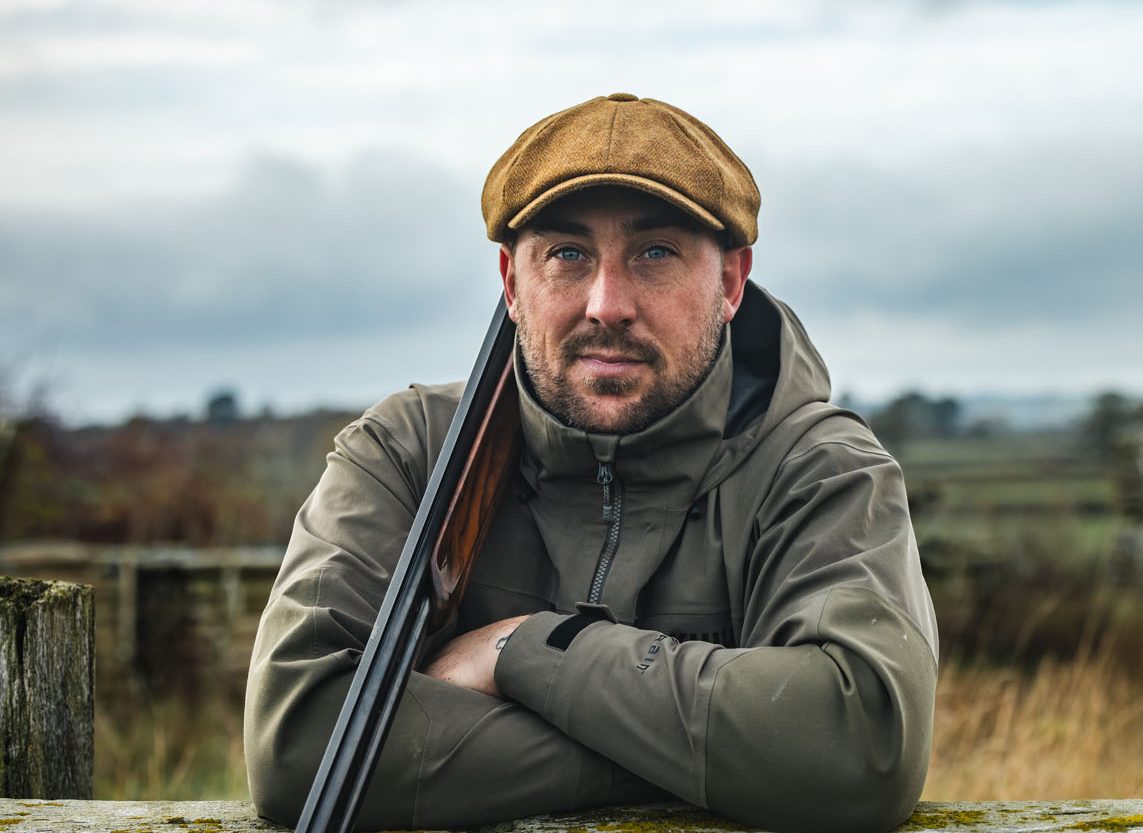The countdown is on for The British Shooting Show – book tickets online today and save on gate price!
Vegan to hunter
Emily Damment tells the extraordinary story of one man’s transformation from full veganism to harvesting his own wild meat, with plenty of lessons to learn along the way.
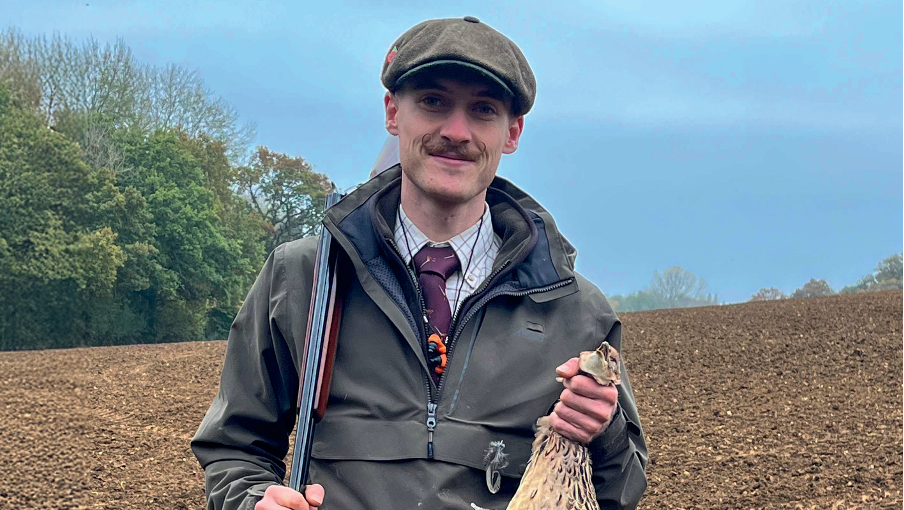
I have always suspected that vegans and hunters have more in common than either group likes to admit. Concern for animal welfare and a desire to protect the environment are common to both lifestyles. A vegan would appear to have more in common with someone who shoots their own meat than with someone who gets it from the bargain bin in the local supermarket.
Perhaps if these polarised communities could spend some quality time together – learning about each other without ego, anger or preconceptions – they might find common ground. If you’re thinking this all sounds a little naïve and fanciful, prepare to swallow your cynicism, because I have a real-world example to support my belief.
It all started with a Facebook post that appeared in the appropriately named ‘Fieldsports for All’ group. The photograph showed a young man dressed in the usual country garb, with a shotgun over one shoulder and a lovely hen pheasant clutched in the opposite hand. The accompanying text read: “From vegan to shooting my first pheasant in just under two years.”
As you can imagine, the post attracted rather a lot of attention – 110 comments and over 1,500 likes, last time I checked.
The man who created this social media stir is 26-year-old Will Blackburn, who hails from Suffolk and was, until two years ago, a full-blown vegan. He had been a vegetarian for many years and his reasons for progressing to veganism were mainly driven by animal welfare concerns, with a touch of environmental consciousness thrown in.
However, even before his adventures in the shooting world, Will was “never fully convinced” by the claim that a vegan diet is always better for the environment.
From the start
Those adventures began with an invitation from a neighbour. “He had pheasants hanging up. I knew people shot them but didn’t know anything else about it,” explains Will. “Apparently I went round and asked whether he had to hang them there as it was upsetting my partner, although I don’t actually remember doing so. He was ready to have an argument about it, as that’s how it usually goes. But when he offered to explain it all and I was open to listening, he invited me to come along to his local syndicate shoot and see for myself what happens. I agreed to go for the day.”
As was the case for so many of us in the shooting community, that first day out in the field made a lasting impression on Will – it touched something in him that he didn’t know was there. He described it as a primal feeling: “It’s like you’re activating some deep-rooted thing in humans; this is why we’re here, this is what we did to survive. The people who didn’t hunt didn’t make it. It was that feeling that made me look at the other elements of shooting and go back for more.”
The shoot in question is the sort we all know and love – small, syndicate-run, with a four-bird bag (if you’re lucky) towards the end of the season. In other words, the ideal environment in which to take those first tentative steps into an unknown world.
Unsurprisingly Will found it a little difficult to watch the pheasants being shot at first, but by his third visit he had a game carrier around his neck and was enjoying helping out in the beating line. By attending with an open mind and watching the reality of what was happening, he found his preconceived notions of what shooting was all about begin to melt away.
“On our shoot it’s not easy to kill a bird,” he said. “You really have to earn it and the birds definitely have a fighting chance to survive. It’s the same as if a fox were after them – the weakest get eaten and the strongest survive and thrive. It’s almost like natural selection. I saw one pheasant sit up in a tree and refuse to move, no matter how hard the beaters tried – he was clever and lived on. I think I just woke up to the fact that this is actually fair and a lot more ethical than you would think.
“I have family in Texas and my cousin out there hunts a lot, which was my only exposure to shooting in any form. So I just didn’t know anything about it and like a lot of others I assumed it was something that pompous rich people do. You can only base your opinion on what you know, and if you’ve never seen it for yourself, what you know comes from TV and films. I think shooting is completely misunderstood and a lot of the aversion to it is actually a class war.”
As a community we can learn a lot from the good folk on this shoot. Along with Will’s new-found appreciation for the ethics of harvesting wild meat, he told me that a huge part of all of this – a key reason that he kept going back – was the warm welcome he received from everybody on that first day.
“Nobody was judgemental at all; nobody tried to argue with me,” he said. “I remember someone had shot a pigeon and they were breasting it out back in the barn. I asked them – what’s with all the leaves and greenery coming out of it? I didn’t know that was the crop at the time. No one laughed at me; they just explained everything patiently. How I was treated there really made a difference. If I had been ridiculed for asking a stupid question it would have been a very different experience. But no one made jokes; I was just accepted. I carried on attending for that first season, and the next season I went along to every shoot as a beater.”
Having a father in the military meant that Will was no stranger to gun safety, and despite never having been involved in live quarry shooting he had been out on the clays a few times. His neighbour had some land and a trap, and once he was satisfied that Will could hit a target and wasn’t likely to kneecap anyone in the process, he was invited to have a go at shooting a pheasant.
Into the syndicate
“My neighbour stood next to me, helping me through it, but I missed the first one I had a go at,” he said. “Then the guy who runs the syndicate said there was a place for me as a half gun the next season if I’d like it. He knew I was applying for my licence and was more than happy to have me on the syndicate. That led to me shooting my first pheasant on the second shoot of this season.
“I was really, really pleased to shoot the first one. The best thing about it was that I shot it with the first barrel and it was dead before it hit the ground. Of course that can’t happen every time, but for me it was perfect that it went straight through the heart and was killed immediately. It made the whole thing even more pleasing. It was in front of everyone and it was a pretty good shot – everyone was very congratulatory. I also loved knowing that I’m then going to eat that bird. It was the whole process – I’ve been in the field, killed the animal and now I’m going to eat it.”
Shooting is all about the food for Will, and I firmly believe this is the best way to help non-shooters understand why we do what we do – even if most of them probably have no desire ever to do it. I’ll never forget watching Rachel Carrie a few years ago on TV’s This Morning, talking about how she feeds her family cheaply and ethically on hunted meat such as rabbit and pigeon. It was, to date, the most positive national coverage of shooting I have ever seen. It was perfectly simple to understand, easy to relate to and made perfect sense. It forced antihunting viewers who did eat meat to realise their own hypocrisy, which is something that Will has come to understand through his shooting escapades.
He said: “There’s such a disconnect now from our food. People think meat just appears in a supermarket. They are so detached from what they eat and where it comes from that they have zero understanding. Another thing I came to understand is that in nature animals die one of two ways – from starvation or being killed by a predator. Neither of those deaths is very nice, so if an animal is just going about its business and one day the lights go out, to me that’s much more ethical and fairer than anything else.
“I still hold life to a high value, but I’ve come to accept that in nature many animals eat other animals and we are just members of that group. Still, it doesn’t feel ethically right to eat something that’s been stuck in a cage. It’s the same feeling as someone who doesn’t eat meat at all – it’s just a different way of being ethical.”
The most incredible thing for me about this whole story was that Will was willing to find things out for himself and change his mind. That takes a lot of character and would be simply too bruising for many an ego. If you read my ‘Interview with a Vegan’ article a few months back, you’ll know that for that guy it wasn’t just a diet – it was closer to a religion. As soon as the discussion got difficult or threw up a question he couldn’t answer, he turned to blind faith or outright denial. He was also an activist, so veganism was a huge part of his social life. If he did ever want to explore other options, I’d imagine the backlash would be huge.
Opinions and views
“I haven’t really had any backlash,” he said. “I think part of the reason I was open to this and able to change my mind was because I was vegan off my own back. My opinions and views came from my own experience and research. I was never part of a group that could put pressure on me. People are married to their ideas and opinions. They act as if it’s part of them, and to admit that you’re wrong would be like a personal attack on yourself. If you can’t separate yourself from your opinions you’ll never be able to grow and move forward.
“I think that people on both sides need to try to be more open-minded and willing to listen. Then there would be more people in my situation willing to change their perspective. When neither side is open to finding common ground it will never happen, and you’ll never realise that you might have a very similar mindset to others.
“There is so much stuff I didn’t realise, and other vegans don’t realise. Such as if you didn’t have shooting, then woodland wouldn’t be looked after and preserved, and all the benefits it brings to other wildlife would be lost. These are the things I learned from talking to people on the shoot.”
There are so many lessons to be learned from Will’s story. Please don’t read this article and feel smug because a vegan has admitted that we’re right and he was wrong. There are people at fault on both sides of the vegan–hunter debate, and as a community, we can be just as stubborn and closed-minded as the most die-hard vegan – more so, at times.
If we break this story down, I’d say there were two key factors that enabled Will’s transformation. The first was a kind invitation from a neighbour who could just have told Will to run along and mind his own business. The second was a warm, non-judgemental welcome from the folk on the syndicate shoot. Those are two factors that we all have the ability to control and replicate.
Beyond that it all comes down to whether an individual connects with the experience of being in the field. For Will it certainly did, and he has opened up a whole new world for himself that I am sure will not end with pheasant shooting.
Get the latest news delivered direct to your door
Subscribe to Sporting Gun
Subscribe to Sporting Gun magazine and immerse yourself in the world of clay, game and rough shooting. As the leading monthly publication for passionate shooters at all levels, Sporting Gun delivers expert advice, practical tips and in-depth reviews to enhance your skills and enjoyment of the sport.
With features ranging from gundog training to pigeon shooting, and wildfowling to equipment recommendations, you’ll gain valuable insights from professional shooters and industry experts. A subscription not only saves you money on the cover price but also includes £2 million Public Liability Insurance, covering the use of shotguns, rifles and airguns for both recreational and professional use.
